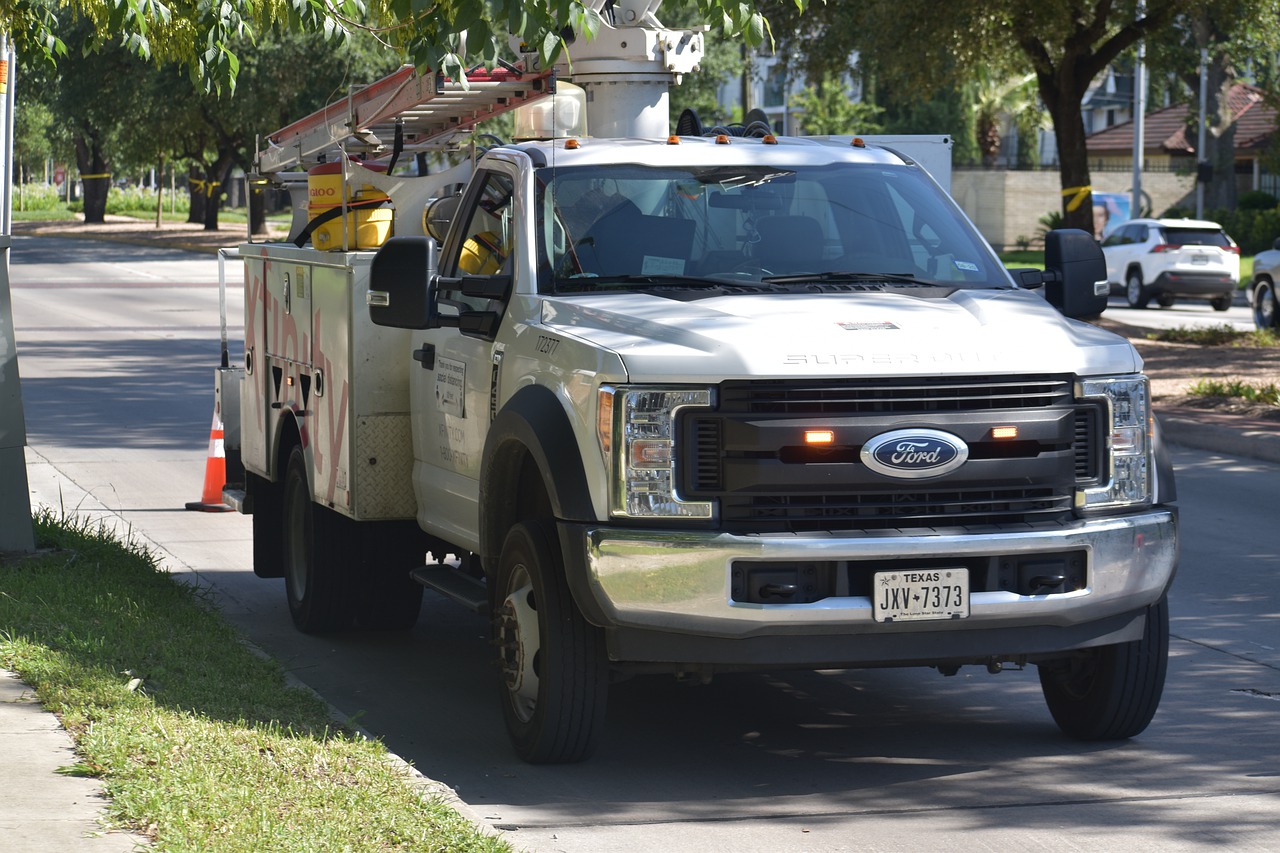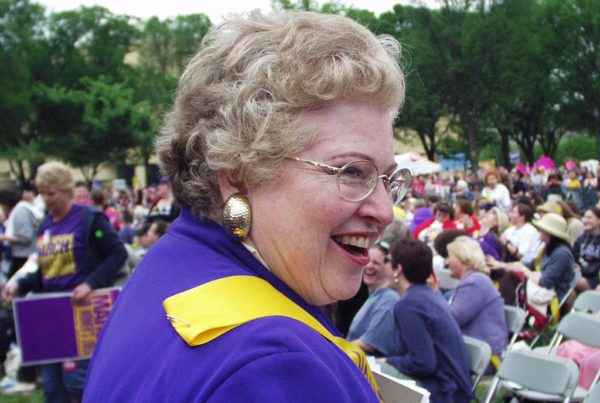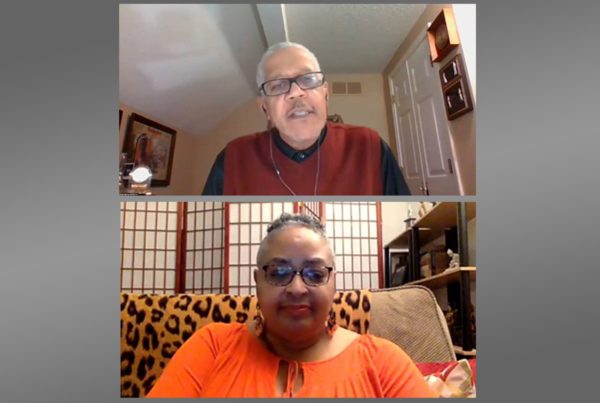Traditional cable TV providers are required to pay cities and counties something called a franchise fee in exchange for using the local cable infrastructure. But streaming services like Netflix, Hulu and Disney+ do not have to pay those same fees. So, as more people move away from traditional cable, cities are collecting less revenue from the fees.
That arrangement is currently being scrutinized by the courts, however, as Texas cities including Grand Prairie, Dallas and Irving have all sued streaming services in order to collect franchise fees.
The Texas Standard learns more from John Bergmayer, legal director for Public Knowledge, a public interest group focused on the intersection of communication and technology. Listen to the interview with Bergmayer in the audio player above or read the transcript below to learn more about why franchise fees matter and how laws might need to be revisited to better adapt to today’s streaming and cable industries.
This interview has been edited lightly for clarity.
Texas Standard: These kinds of lawsuits over franchise fees have been filed in several states, not just Texas. So how widespread of an uprising are we looking at here?
John Bergmayer: It’s pretty widespread and it’s been over the past several years. So we’ve seen cases in Ohio. Public knowledge: we recently filed a brief in Tennessee and a broadly similar case. So yeah, it’s a very common thing. And it’s understandable because a lot of cities are dependent on this franchise fee revenue. And as that starts to dry up from the traditional sources, it’s completely understandable that they’d be looking for ways to make up for any shortfall.
It’s understandable that cities don’t want to lose a revenue stream, but how much revenue are cities actually losing out on?
That’s a good question, and I’m sure that varies city by city just depending on the size and nature of it. So, I couldn’t speak to the numbers in particular. But I should point out that I think that these lawsuits are probably misguided, and that’s because cable franchise fees, I think they’re a totally justifiable practice. But that was really based around making sure that cable companies who are operating infrastructure, constructing infrastructure throughout a city, basically serve the whole city. They’re using public rights of way, so certain fees and certain public benefits are completely reasonable to expect in exchange for getting free access to things like utility poles and so forth that they need to run their wires.
But also a very big motivating purpose of these franchising fees is to prevent digital redlining, where a cable company comes in and it serves only the profitable neighborhoods and then not the less-profitable ones. And then, frankly, if a competitor comes in, they might have the same incentive, leaving some neighborhoods completely underserved. So, part of the bargain of the franchise fee agreement is, it’s like, you can come into our city, but we just want to make sure that you serve the entire community. And I think there’s a lot of logic to that, and that kind of doesn’t apply to these online streaming services.
Instead, I would say that, you know, we need to be making sure that ISPs [internet services providers], that broadband providers, are actually providing the infrastructure to all aspects of the community in the similar way that we did with cable television in the past.
The other side may say, well, a lot of these streaming companies are major media conglomerates. They make a lot of profit using the internet, which relies on the infrastructure that was put down. Why shouldn’t they pay?
Yeah, and that is completely true. And at the same time, it is still not those companies who are building that infrastructure. If the worry is that we need to make sure this infrastructure is getting built, that broadband service is affordable to people and that it reaches every aspect of a community, I mean, you need to look to the companies that are actually building that infrastructure, not the various internet services that people access once they have it.
Are you suggesting that no one should pay for that access? If you were getting something from, Hulu or Disney+, should the cities not collect revenue on that? Or is it all going to end up trickling down to the consumer to pay more for content?
First, yes, you’re right. Ultimately, consumers are paying and it’s a matter of structuring a system to make sure that it’s done in a fair and equitable way. And in terms of who should pay for who gets the revenue, I think that cities absolutely should get the revenue from broadband providers – all the revenue that they’re missing. I’m just suggesting that policies that are put in place about physical cable companies who are driving trucks on streets and physically accessing rights of way and physically using ducts and poles and all that, I think it’s important to make sure it’s, like, OK, that’s the problem that we were trying to address with these laws. They were written in a way that just says “video providers,” so, thus the lawsuits – I’m well aware of that. But I think their motivating purpose was about infrastructure.
I think when Netflix first started becoming more mainstream – the online streaming version of Netflix, not just the DVDs – people were like, oh, this is going to be this alternative to cable. And really, as it’s developed Netflix is closer to an HBO; it’s closer to a cable channel. I tend to view Hulu and Disney+ and all these other different services not as one-stop-shops à la cable, which was, in part, a fact of the technology – you can only have one set of wires, so you had to have a one-stop-shop – versus now when it really is a much more à la carte world where the nature of of these services is a lot closer to cable add-ons.
For example, I would question, why would Hulu have to pay and not Facebook? OK, the law says “video,” but you know, there’s not really a logic to it anymore. It’s just sort of taking law and trying to apply it to the services that you see out there with the law as it is written, when, you know, sometimes it’s better to just revisit the policy motivating the law and update it to reflect current reality better.
Litigation over this issue isn’t new, even though a lot of Texas cities just now seem to be jumping onboard. Given that we’ve seen these recent cases filed, are we seeing any trends in decisions or are there any precedents that are being set or emerging so far in terms of how these cases are being decided?
I don’t think there has been a definitive resolution one way or the other. The cases continue to be filed in different states and they continue to be defended in different states. And just the nature of our federal system is that even if two states have copy-and-paste laws textually identical to each other, courts in one state might read it one way and courts in another state might read it a different way. So I think it’s going to take quite a while to resolve.
And I would say my concern on this issue is really not the legal issue: does federal law preempt it and everything – that’s all relevant. But really, just trying to refocus people’s attention as to why we have cable franchising rules. It’s really to prevent digital redlining and ensure equitable access to infrastructure, and hoping that, to the extent that people are thinking about this and lost revenue to try to maybe look to those policies for better ways to accomplish the same end in a more long-term and sustainable fashion.














